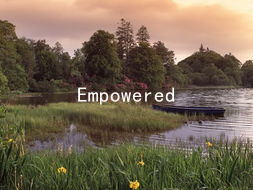Love Through the Ups and Downs: Effective Dating Techniques for Bipolar Couples
Love Through the Ups and Downs: Effective Dating Techniques for Bipolar Couples
Navigating the complexities of any relationship can be challenging, but when one partner has bipolar disorder, understanding and communication become paramount. The emotional highs and lows inherent in bipolar disorder can impact the dynamics of a romantic relationship. However, with the right techniques and strategies, couples can foster a nurturing and loving environment that promotes growth and resilience. Here are some effective dating techniques tailored specifically for bipolar couples.
1. Open and Honest Communication
At the heart of any strong relationship is communication. For couples where one partner is bipolar, it’s essential to foster an atmosphere where both partners feel safe to express their feelings. Regularly engaging in open conversations about moods, triggers, and coping strategies can prevent misunderstandings and build a deeper connection. It might be useful to set aside time each week to discuss how each partner is feeling and to share any challenges they are facing.
2. Establish a Routine
Bipolar disorder often involves significant mood swings, which can make unpredictability a common theme. Establishing a routine can help provide structure and stability for both partners. Regular mealtimes, sleep schedules, and date nights can create predictability, making it easier to deal with unexpected mood shifts. This consistent framework can help reduce anxiety and create a sense of security within the relationship.
3. Educate Yourselves
Understanding bipolar disorder is crucial for both partners. Reading books, attending workshops, or speaking to mental health professionals can provide insights into the disorders intricacies. This knowledge can foster empathy, allowing the non-bipolar partner to understand potential mood swings, while the bipolar partner can learn strategies to communicate their needs more effectively. Knowledge is power, and being informed helps both partners navigate challenges together.
4. Create a “Crisis Plan”
During manic or depressive episodes, emotions can run high. It’s beneficial for couples to establish a plan for how to handle these times. Discuss strategies for what to do when one partner feels overwhelmed, including identifying safe spaces to retreat to, methods of grounding, or seeking professional help. Being prepared can alleviate fear and foster trust in the relationship, knowing that both partners are committed to supporting each other.

5. Set Boundaries
While communication is vital, boundaries are equally important. Both partners should feel comfortable discussing what they can handle and what they cannot. If the bipolar partner is experiencing a difficult episode, the non-bipolar partner must communicate their limits without guilt or fear. Setting these boundaries can help prevent resentment and ensure both partners feel respected and valued.
6. Focus on the Positives
Amidst the challenges, it’s essential to celebrate victories—no matter how small. Engage in activities you both enjoy, and cherish the positive moments that arise throughout the relationship. Keeping a journal of good experiences can serve as a reminder during tough times, reinforcing the bond between partners and acknowledging the love that persists through struggles.
7. Encourage Professional Support
Encouraging the partner with bipolar disorder to seek professional help can significantly benefit the relationship. Regular therapy or counseling sessions can provide the necessary tools for managing the disorder and can also offer couples counseling to strengthen the relationship. Both partners must recognize the importance of professional support as a foundation for a healthy partnership.
8. Practice Patience and Empathy
Understanding that bipolar disorder is not a reflection of one’s character or relationship can be liberating. The ups and downs are part of the journey, and practicing patience and empathy during challenging times is essential. Love often requires effort and commitment, and recognizing that both partners are doing their best can strengthen the bond even further.
In conclusion, while dating someone with bipolar disorder may come with unique challenges, employing effective techniques can turn potential hurdles into opportunities for growth. Through open communication, establishing routines, education, and prioritizing professional support, couples can cultivate a deeply fulfilling relationship that thrives amidst the ups and downs of life. Love, in all its complexity, can blossom and endure with understanding, patience, and mutual respect.





